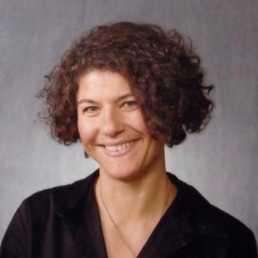Sharing What We Have Learned: Healthy City Collaborative
Sharing What We Have Learned is sponsored by the Office of Community Engagement and Neighborhood Health Partnerships, Healthy City Collaborative, and the Office of Health Literacy, Prevention, and Engagement. We are pleased to highlight research and community engagement activities of UIC researchers. Each month we feature a researcher and important findings from their work. This information is shared in a ready-to-use format suitable for widespread distribution. If you would like more information about our efforts to share what we have learned, visit our website or email sabrina1@uic.edu.
“Re-imagining Community-Engaged Research Design Methods at the UIC Center for Literacy: The Read, Make & Play Family Literacy Initiative Study as Example”
Kira Baker-Doyle PhD
Associate Professor of Curriculum & Instruction
Director of the Center for Literacy
UIC College of Education
Introduction
The UIC Center for Literacy is a community engagement and research center housed in the College of Education. The mission of CFL is to increase educational equity, access and opportunities for families by fostering community social capital through multigenerational literacy programming, research and partnerships. Each year CFL serves over 5,000 Chicago families through a range of programming, including parent workshops, GED courses, English as a Second Language classes, teacher and volunteering training, and support for families of children with autism and developmental delays. CFL works closely with the Head Start Child care centers across the City of Chicago, and has deep and lasting roots in the community. CFL also engages in a range of research partnerships and endeavors. It uses a community-engaged participatory research approach that advocates for and supports the communities with which it works.
Methodology
In 2019, Baker-Doyle joined UIC as the director of CFL and faculty member in the College of Education, and created a CFL research taskforce made up of practitioners, graduate student researchers and instructors, and scholars at CFL to reimagine our research model. She provided limits that she wanted to turn toward a more community-engaged, strength-based approach in her research approach. Through a series of focus groups, literature reviews, surveys, and reflections, the taskforce developed four principles to guide their research design.
An example of these four research principles in action is in CFL’s “Read, Make & Play” study, which used a design-based implementation research approach to examine how parents shared and co-constructed knowledge about learning and literacy in a multi-language family literacy program called “Read Make & Play.” RMP provided parent participants with a shared set of children’s literature and games and facilitated a six-week series of multi-language conversations with parents focusing on parental inquiry, agency and welcoming language.
In line with the DBIR research approach and CFL research principles, RMP practitioners and university faculty/students were co-researchers, and use a repetitious approach to implementation, research and theory-building (Fishman, et al, 2013). Study participants included 32 parents of children age 0-5 who participated in a six-week program that met once a week. Seventeen of the 32 parents spoke Spanish as their first language. Study data sources included a pre-and post-program survey, weekly check-in surveys, meeting observations and individual interviews.
Conclusion
The results of the RMP study gives insight into the impact of this design on parents’ co-construction of knowledge about learning and literacy, and offers results that will help with theory development. Baker-Doyle and colleagues identified two key themes: (1) parents shifted their understandings of literacy from “literacy as schoolwork” to “literacy as home,” and (2) parents began to see each other as valuable resources for literacy practices. These findings demonstrate a collective uncovering of parents’ community cultural wealth. In future research, the team hopes to continue to repeat upon its program design, using these research findings and expand to working with schools to help build better home-school connections based on what we learn through their research.
About Our Researcher
Baker-Doyle is the director of the Center for Literacy and associate professor of curriculum and instruction in the College of Education at the University of Illinois Chicago. She is known internationally for her innovative work in teacher professional development and community engagement, particularly in the areas of literacy, technology and connected learning. She is the author of several books on these topics, including “Transformative Teachers: Teacher Leadership and Learning in a Connected World” (Harvard Education, Press, 2017), as well as a range of scholarly publications.
Research Team:
Kira J. Baker-Doyle, UIC Center for Literacy
Sarai Coba-Rodriguez, UIC College of Education
Andrea Vaughan, UIC Center for Literacy
Shawndra Allen, UIC Center for Literacy
Evelyn Pollins, UIC Center for Literacy
April Andry Rah’man, UIC Center for Literacy

